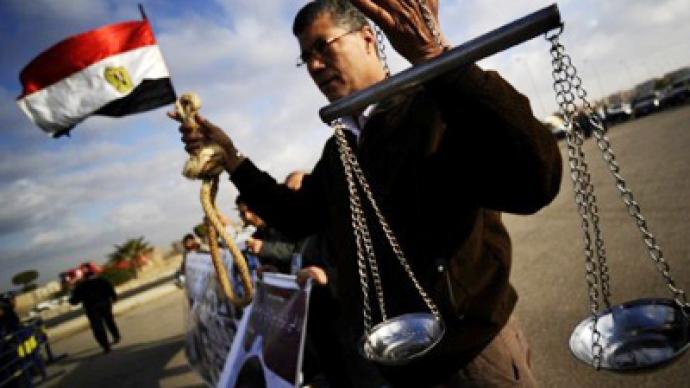Egyptian Islamist parties are set for victory as the last round of elections to the lower house of parliament continued Wednesday. But has the first legislative vote in 60 years cemented an alliance between the Muslim Brotherhood and the military?
With the Muslim Brotherhood's Freedom and Justice Party (FJP) in the lead and the more hardline Islamic Salafis in second place as the third and final round of voting got underway Tuesday, secular activists fear the final tally will be a nail in the coffin of hopes for true democratic reform. And as the two leading Islamic parties carry some 70 percent of votes, fears are spreading that Sharia law could become a reality in Egypt. While the new parliament chooses a 100-person assembly to write Egypt's new constitution, the Muslim Brotherhood has promised not to use its electoral success to impose its constitutional vision on others. "The party's winning of the majority in the new parliament does not mean going it alone in writing the constitution without consideration for the rights of other Egyptians, or ignoring the political forces which did not get a majority or failed in the parliamentary elections," said FJP head Mohamed Morsi, cited by Reuters. There has been talk of an Islamist takeover; some fear a deepening of ties between the Muslim government and the ruling Military Council, which has ruled the country since a popular wave of protests toppled the regime of longtime President Hosni Mubarak last February. Political analyst Chris Bambery tells RT that though the Muslim Brotherhood has always been used as a boogieman in the West, despite constantly going out of its way to prove it is a moderate force in Egyptian society. The Brotherhood cooperated with both the Mubarak regime and the US, only to be oppressed by both. “It is not surprising the Muslim Brotherhood have done well in these elections. They were the only organized force in Egyptian society: they have a network and have had popular support for several decades in Egypt,” Bambery told RT. “There are those in the West who are almost hysterical about the idea of an Islamist party doing well in elections in Tunisia, and now in Egypt,” he added. “But you’ve got to say if you gave a people a right to determine their own future it was always going to be the case that an Islamist party would do well in Egypt.”The staggered, lower parliamentary election is set to conclude with a run-off vote next week, with the final results expected on January 13.


